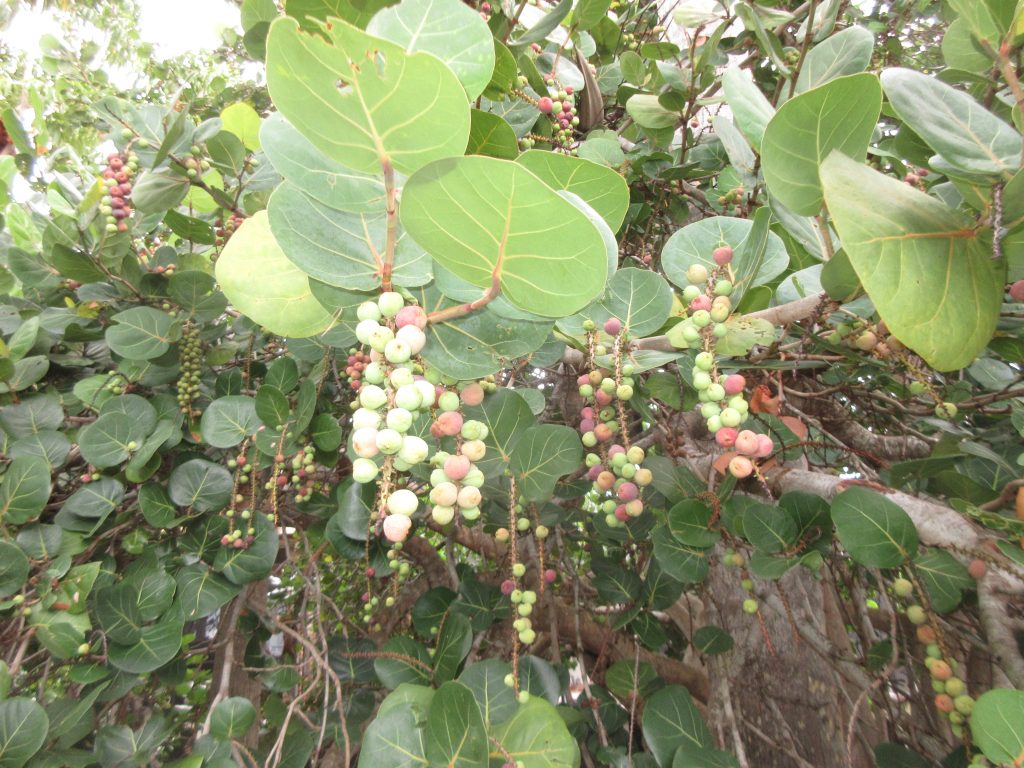Litte baby coconut tree, just getting started.
Tuesday, 5 November 2024
Great multitudes followed Him—from Galilee, and from Decapolis, Jerusalem, Judea, and beyond the Jordan. Matthew 4:25
Note: You can listen to today’s commentary courtesy of our friends at “Bible in Ten” podcast. (Click Here to listen)
You can also read this commentary, scrolling with music, courtesy of our friends at “Discern the Bible” on YouTube. (Click Here to listen), or at Rumble (Click Here to listen).
To read the Chapter 4 translation on YouTube (Click Here). To read it on Rumble (Click Here).
“And great throngs, they followed Him from the Galilee, and Decapolis, and Jerusalem, and Judea, and beyond the Jordan” (CG).
In the previous verse, people brought the sick from all the areas of Syria, and Jesus healed them. Next, Matthew records, “And great throngs.”
It is the first use of ochlos, a throng, in the New Testament. It is a word that can indicate a crowd, mob, the common people in general, etc. In this case, because of the masses of humanity around Jesus, intensified by the word “great,” and because it is plural, the word throng gives a good sense. The people were not just a crowd, as if from the local village, but from all over, as Matthew next says, beginning with the words, “they followed Him from the Galilee.”
As previously noted, the Galilee is not merely referring to the sea and its immediate surroundings. Rather, it is an entire circular region with many cities that extend well beyond the sea itself. Next, it says, “and Decapolis.”
The word is a transliteration from the Greek Dekapolis. It is derived from deka, ten, and polis, city. Albert Barnes says –
“Decapolis was the name of a region of country in the bounds of the half-tribe of Manasseh, mainly on the east of Jordan. It was so called because it included 10 cities – the meaning of the word Decapolis in Greek. Geographers generally agree that Scythopolis was the chief of these cities, and was the only one of them west of the Jordan; that Hippo (Hippos), Gadara, Dion (or Dios), Pelea (or Pella), Gerasa (or Gergesa), Philadelphia, and Raphana (or Raphanae), were seven of the remaining nine, and the other two were either Kanatha and Capitolias, or Damascus and Otopos. These cities were inhabited chiefly by foreigners (Greeks) in the days of our Saviour, and not by Jews.”
Next Matthew notes, “and Jerusalem.”
Depending on the route traveled, the distance from Capernaum to Jerusalem is about one hundred and twenty miles. This is a long way to walk, but people traversed the country in order to see the One they had heard about. If there were lame or sick among them, they would either be carried or placed on a donkey. Thus, it would have been a tiring journey for those involved. After this, it next says, “and Judea.”
This includes the entire region in the south of Israel. It extended from Samaria to the north to Beersheba in the south. It also covered the area from the Jordan and Dead Sea to the Mediterranean Sea. It is an expansive area, filled with cities. Lastly, the words end with, “and beyond the Jordan.”
The meaning is anything east of the Jordan not already covered by the term Decapolis. The area at the time was known as Peraea, the name of which is probably derived from the words “beyond Jordan.” The word translated as “beyond” is peran. In other words, anywhere that Jews lived that was beyond the Jordan is included. Today, this area is mostly encompassed by the nation of Jordan.
Due to the great amount of land included in the description, and the large number of cities found throughout it, the word “throngs” is an excellent descriptor of the situation. These words close out Chapter 4, but in Chapter 5, the gathering of these throngs will lead to the great Sermon on the Mount delivered by the Lord.
Life application: The word of Jesus spread throughout all the areas where the Jews were staying in the immediate region of Israel. His ministry was directed to these people first. It was a ministry conducted under the Law of Moses but which anticipated a time that extended beyond the Law.
The reason for this, as He will say in Chapter 5, was that He and His ministry came not to destroy the law, but to fulfill it. In other words, Jesus Himself was not setting aside the law merely by His coming, but through His time of having come. He voluntarily placed Himself under the law. Within that state, He then lived out the precepts of the law perfectly, having never violated its precepts.
In fulfilling the law, it was then set aside for all who come to Him through faith. When Jesus was conducting His ministry, the people of Israel had no idea that His work would later be inclusive of the Gentiles, people who were never under the law. Thus, when we read His words, and those of the writers of the synoptic gospels in particular, we need to understand the context of what He is saying.
Because the words of His ministry really start to take shape in Chapter 5, keep this in mind. If you are a Gentile, or a Jew who has already received Jesus, don’t shove yourself into the words. Determine the context and then ask yourself, is this section referring to me too, or is it only to those who have not yet received Jesus? At times, they will speak of one or the other, but the majority of what is said is directed to Jews who are under the law and their need to come to Jesus to be freed from its heavy yoke.
Heavenly Father, thank You for Chapter 4 of Matthew. It has been a great experience and a joy to consider. We look forward to the next chapter. Help us to keep things in context and to remember the rules of biblical interpretation as we go. Be with us in this time of discovery. Amen.





